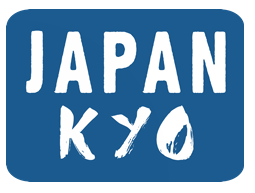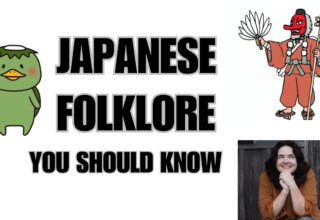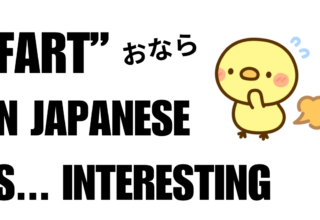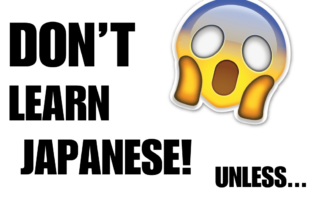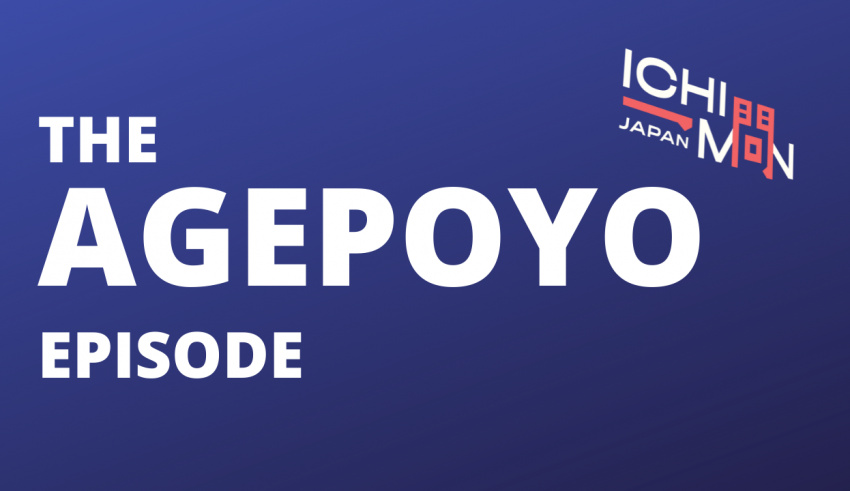
On this episode of Ichimon Japan we ask: What are gyaru?
Topics Discussed
- What the term gyaru/gal means/refers to
- About the word gyaru
- How the word gyaru was used in Dragonball by Master Roshi
- What a kogyaru/kogal is
- About the singer Namie Amuro and her role in popularizing the gyaru subculture
- About Ayumi Hamasaki’s influence on the gyaru subculture
- About the supposed but unconfirmed connection between the gyaru subculture and the American TV show Baywatch, as well as Pamela Anderson
- About the iconic “loose socks” (lūzusokkusu)
- About E.G. Smith, the supposed origin of loose socks
- An interesting linguistic quirk about the Japanese term for “loose socks”
- About ganguro and yamanba gyaru and their dark tans
- About ageha gyaru
- The connection between gyaru, eurobeat and parapara
- What eurobeat is
- What parapara is
- Contemporary gyaru
- What gyarugo is
- Examples of popular gyaru slang
- What karipaku means
- What MK5 means
- What ChōSW means
- What sumisu means
- What ATM means
- What gachi means
- What agepoyo/sagepoyo mean
- What doron means
- What tehepero means
- What gekiokopunpunmaru means
- And much more!
Listen to Ichimon Japan on
Apple Podcasts Google Podcasts Stitcher Spotify iHeartRadio PodBean Tunein RSS
Support on Patreon
If you enjoy Ichimon Japan and want to ensure that we’re able to produce more episodes, then please consider becoming a patron on Patreon.com. You can join for just $1 a month and that comes with perks like early access to episodes, a shout-out at the beginning of a future episode, bonus content, and discounts to Kimito Designs. For $3 a month you get all that plus access to Japanese Plus Alpha, a podcast produced by me (Tony Vega) that focuses on the Japanese language and its many quirks. Whether you are studying Japanese or just enjoy learning about language and linguistics, you’ll enjoy Japanese Plus Alpha.
And it goes without saying that if you sign up, you’ll also get my undying gratitude. Thanks in advance!
Sources, Links, Videos, Etc.
Here are some of the Japanese language articles found when researching the topic of this episode.
- ヤマンバ、イベサー、ガングロ…ギャル・ギャル男はどこに消えたのか? 【 「ギャル文化」と「渋谷」をめぐる歴史を紐解く】
- ギャル文化特集~ギャルの歴史と生態~
- This is the article that has the illustrations of the gyaru that Ryan mentions during the episode.
- ガングロ
- ギャル系ファッションとは。ブランドと歴史【イラスト&図解
- アラサーしかわからない!?90年代のギャル語クイズ
- 歴代ギャル流行語大賞/年代流行
Here’s some of the English language sources read for this episode.
Here’s a Japanese documentary about gyaru. Definitely worth a watch if you understand Japanese.
In this video you can see the 150 cm long loose socks that were mentioned in the episode.
Here’s a TV from 1996 about loose socks.
Here is a video from 2020 in which a Japanese YouTuber tries to get girls in Shibuya to put on loose socks.
To check out the “snakes in a well” episode of Ichimon Japan, use the link below.
Don’t forget to check out the latest episodes of the Japan Station podcast via the links below.
Support the show by picking up a t-shirt at KimitoDesigns.com.
Japanese Vocabulary List
Most episodes feature at least one or two interesting Japanese words or phrases. Here’s some of the ones that came up on this episode. All information is from Jim Breen’s WWWJDIC.
- Pichipichi
- ぴちぴち (adv-to,vs) (1) (on-mim) bursting with youth and energy (esp. young woman); vivaciously young; spunky; energetic; (adv-to) (2) (on-mim) (fish) jumping around energetically (e.g. when caught in a net); (adj-no) (3) (on-mim) bursting (e.g. seams); tight; (adv-to) (4) (on-mim) splattering (e.g. cooking oil)
We Want Your Questions
Is there something about Japan that confuses you? Is there something about Japanese culture that you would like to learn more about? Is there something in Japanese history that you would like us to explain? We’re always looking for new questions about Japan to answer, so if you have one, please send it to ichimon@japankyo.com.
Special Thanks
Opening/Closing Theme: Produced by Apol (YouTube, Twitter, Facebook, Fiverr)
Ichimon Japan cover art: Produced by Erik R.
Follow Japankyo on Social Media
Full Show Notes
